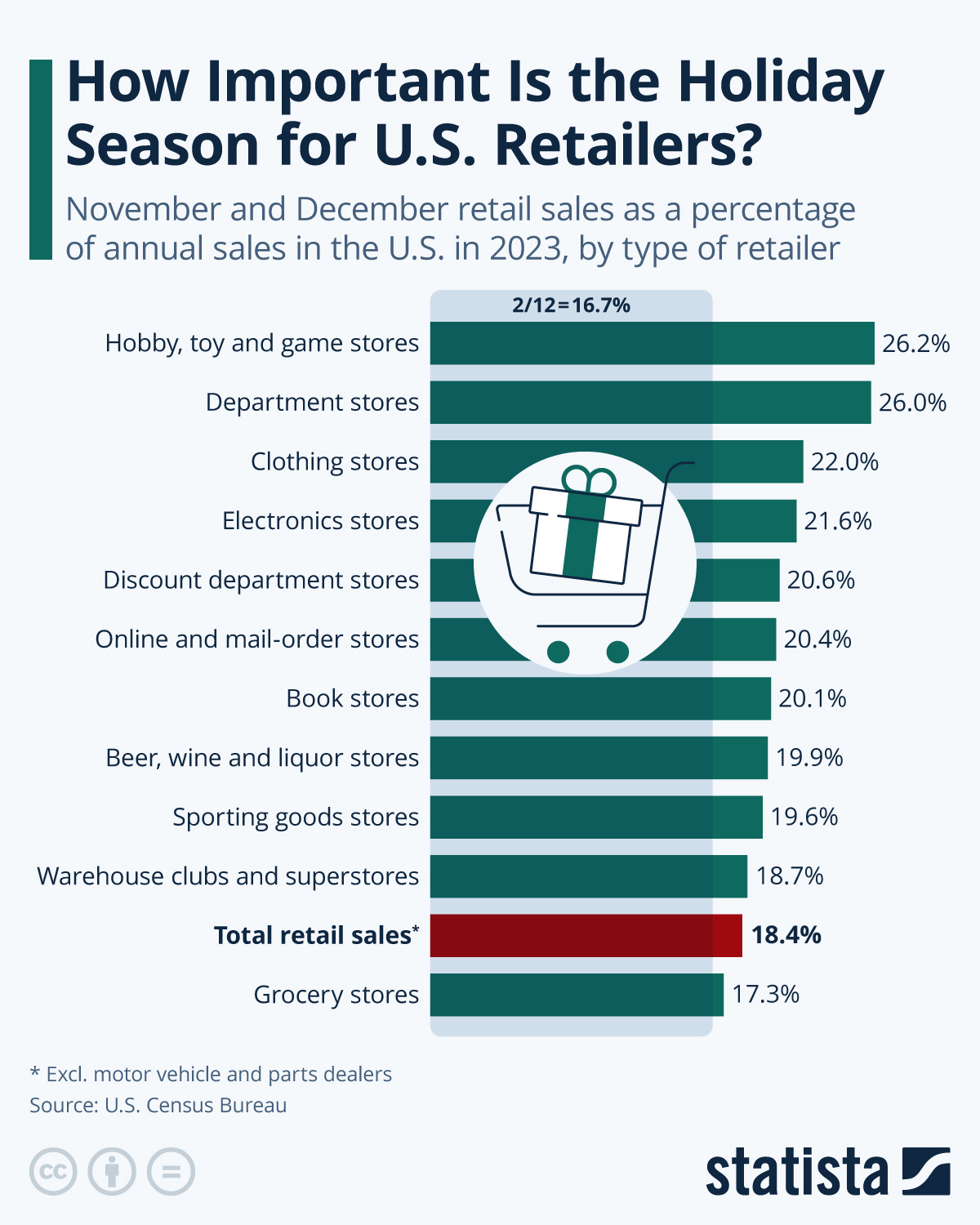What are Financial Seasons?
Depending on if you are talking about personal or business the definition of a financial season will vary. In business, the financial seasons often refer to the yearly quarters or if your business is seasonal it refers to the periods of time when you are making money and the periods of time when there is no work. In personal finances, the seasons refer to the life periods and the financial demands each period requires.
Seasonality in Business
A great example of seasonality in business for bloggers is the Holiday gift guide season. The largest bulk of our income and the busiest time for most bloggers is the ramp-up to Christmas. During the spring and summer, we often find it hard to sustain our businesses with little to no active income but during the fall and winter, we make up for it during the holiday rush. This is true for many businesses, the holiday season accounts for almost half of retail sales.
 You will find more infographics at Statista
You will find more infographics at Statista
Seasonality in Personal Fiances
Our lives and finances fluctuate over time much like the seasons of nature, spring, summer, fall, and winter.
During the spring, we are planning and developing our careers, saving for those big life purchases, a home, a car, to start a family. This is the time of accumulation, squirreling away for a rainy day, scrimping, and saving while we establish ourselves in business and finance. This is when we are eating ramen, living on a tight budget, and dreaming of the house we want to live in.
During the summer we are at our prime earning phase, working and enjoying some of the financial freedom that we have gained through building our careers. We are also enjoying the fruits of our labor including owning a home, going on vacations, and being able to provide for the family when have now begun. This is often when we start to incur some of the largest amount of our debt, such as a home mortgage, car payment, and credit card debt.
During the fall, we are starting to actively think about retirement. We are also incurring more debt as we pay for our children to attend college and are often taking on the role of providing care for our aging parents. This is also the time we must begin to seriously think about eliminating debt so that we can enjoy our retirement years without worry.
The Winter, if we have planned right, is the time of active retirement. It is the time we no longer work and get to enjoy all the fruits of our labor.
Unpredictable Seasons: Financial Reality
In a perfect world, our financial seasons would work out and by winter we would have no worries, our homes would be paid off, our nest eggs would be large, and we would have no debt, but in the real world, things are not predictable. Every day we are faced with unforeseen financial burdens and hardships, whether it is a natural disaster, a pandemic, or a medical emergency.
We can’t predict the future and there are many things that are out of our control, such as the recent global pandemic that has left many people out of work but what we can do is use the proper tools to try and plan for the future so that when we are hit with unforeseen incidents we are not as financially devastated.
Financial planning is a way to plan for the future, It is a guide that helps put you in control of your finances so that when unpredictable seasons happen you can still manage your life and reach your goals without falling into hardship. It can’t prevent natural disasters or medical emergencies but it can help ease the burden by providing a roadmap.





